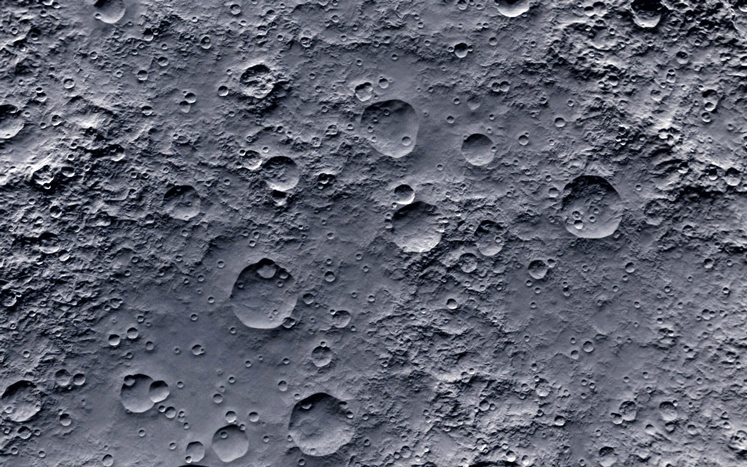
Image Istock
Alexander Nemchin and Gretchen Benedix, Curtin University
Perth, October 10
Volcanic rocks collected from the Moon last year are about two billion years old — a billion years younger than the samples returned by previous missions.
This new discovery means the Moon was volcanically active much more recently than experts had previously thought.
Remote images taken over the past few years had already suggested the Moon is home to much younger rocks than those previously brought back to Earth for direct study.
Research, published today in Science, confirms this fact for the first time. The rock samples were collected by the Chinese National Space Agency during its Chang'e-5 mission in December 2020 — the first time anyone had collected rocks from the Moon since 1976.
During remote sessions with colleagues in China, a team at Curtin University helped determine the age of the lunar rock samples. The results, although long-expected, were exciting.
Previously, the youngest Moon rocks studied on Earth were samples collected by the Apollo and Luna missions in the 1960s and ‘70s, as well as lunar meteorites. All were at least three billion years old, leading geologists to surmise the Moon has not been volcanically active since then.
But after estimating the age of the new Moon rocks based on the rate of decay of radioactive elements in these samples, we determined these latest samples to be about two billion years old. This makes them the youngest volcanic rocks identified on the Moon so far.
Not only is this the first direct confirmation rocks of this age exist on the Moon, it also confirms that our remote observation techniques work. That's great news for experts studying other planets, especially Mars.
With China planning another Moon landing in 2024 as part of its Chang'e-6 mission, this research also puts Australia at the heart of the international collaboration to analyse the resulting samples.
Hot history
The fact the Moon has younger volcanic rocks than we thought also means it must have had a relatively recent bout of internal heating that would have driven this volcanic activity.
The challenge now is to explain how it happened. In general, volcanic rocks (or “basalts”) are similar on various rocky planets and moons. But there are some key differences that make them unique.
Lunar basalts probably form under hotter conditions, because water is more scarce on the Moon than here on Earth.
The presence of water can change the temperature at which the rocks melt or solidify, and the hotter formation on the Moon can create subtle but crucial variations in the rocks' chemical composition, relative to similar types of rocks on Earth.
Many Moon rocks are very high in titanium, for example, which is never seen on Earth, although the rocks collected by Chang'e-5 have intermediate titanium levels.
Our focus will now turn to analysing more fragments to establish how much they vary in chemical composition.
This will hopefully teach us more about the specific conditions under which these rocks formed, initially as volcanic magmas.
We still need to explain what heat source is responsible for the comparatively recent melting of the interior on the Moon, which formed the internal “lake” of magma associated with the volcanic activity, and why it has become cool and inert today.
Ultimately, this will help us improve age dating of the entire Solar system, unlocking more secrets from our cosmic neighbourhood. The Conversation
Join Whatsapp Channel of The Tribune for latest updates.



























